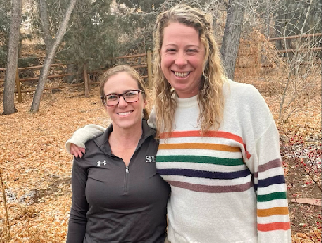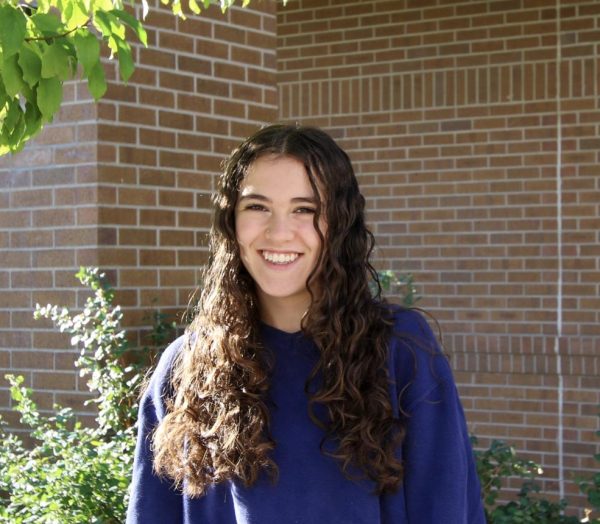SHS Welcomes Solvista Counselor Cassie Stauch

Meryl Tolsma (left) stands next to new Solvista counselor Cassie Stauch (right).
January 30, 2022
No matter the challenge, big or small, every student needs someone they trust that they can go to for support and help. Which is why for the past few years, students and staff at Salida High School have been pushing for a mental health position at the school, and now, thanks to Solvista, the school district has been able to make that happen.
Cassie Stauch, the school’s new clinician, said, “My only role is to be available to students and staff.”
Stauch is available to students for three free therapy sessions. She can also give students the skills to help them deal with common problems like stress and anxiety, focusing, and emotional regulation. If therapy is something that a student finds helpful, Stauch can also help them fill out the required forms and either to go to a therapist at the Solvista office, or to have ongoing appointments with her.
“I think that having access to someone to talk to [is important],” Staunch said. “Obviously we have Mrs. Tolsma […] but she’s just one person.”
While Tolsma does a lot of scheduling and college application guidance along with helping students, Stauch’s only role is to be available for students to talk to.
“It’s still really busy,” Tolsma said, “But it’s helpful to have someone to support. […] It’s so much easier now because I can just, as someone comes to check in with me, I can be like, ‘Hey, someone from Solvista works here now, let’s go meet her.’”
Aside from meeting with students, Stauch also hopes to start groups where students can talk about things that are bothering them.
“I think that teens really learn from their peers, and knowing that we’re not alone in whatever we’re dealing with,” Stauch said.
Groups would be created by finding where there is a need and creating a group around that to provide support for people who need it. For example, if a lot of seniors are stressed about college, Stauch can create a group to help with that.
“A lot of people are going through similar things,” she said, “Groups can help take away the loneliness and isolation from some of those feelings.”
Another thing that can be done in groups or individually is dialectical behavioral theory, or DBT, an evidence-based therapy which teaches stress tolerance and emotional regulation. Stauch also wants to work on normalizing mental health issues and seeking help, which can often be scary. She hopes to take away “the stigma of your classic therapist sitting there checking boxes while you’re talking.”
One of the big problems that Stauch has seen in the school is anxiety and depression. These things can also lead to suicidal thoughts.
“I think that it’s really prominent and consistent,” she said, “It’s around us.”
For people at medium to high risk, it’s important to have a safety plan. Which means knowing that the student has a place they can go to where they feel safe. Having a good support system of people that they can trust and can go to when they’re feeling low is really important.
“It takes a lot of people to kind of come around those people who are struggling,” Stauch said.
Ultimately, Stauch hopes that her presence at SHS will help normalize mental health and help people feel more comfortable reaching out. Her door is always open to talk, and students can contact her through their school email.
“We all need help,” Stauch said, “We just need to know how to ask for it and where to get it.”

